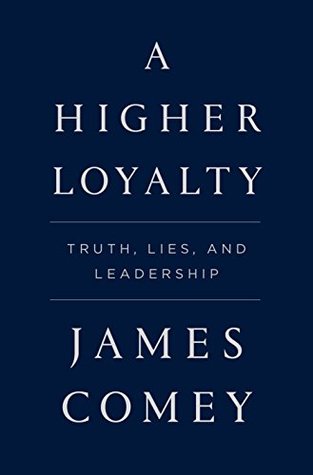More on this book
Community
Kindle Notes & Highlights
Read between
April 16 - May 21, 2018
We are experiencing a dangerous time in our country, with a political environment where basic facts are disputed, fundamental truth is questioned, lying is normalized, and unethical behavior is ignored, excused, or rewarded.
A commitment to integrity and a higher loyalty to truth are what separate the ethical leader from those who just happen to occupy leadership roles. We cannot ignore the difference.
one of the most powerful and disconcerting forces in human nature—confirmation bias. Our brains have evolved to crave information consistent with what we already believe. We seek out and focus on facts and arguments that support our beliefs. More worrisome, when we are trapped in confirmation bias, we may not consciously perceive facts that challenge us, that are inconsistent with what we have already concluded. In a complicated, changing, and integrated world, our confirmation bias makes us very difficult people. We simply can’t change our minds.
We would teach that great leaders are (1) people of integrity and decency; (2) confident enough to be humble; (3) both kind and tough; (4) transparent; and (5) aware that we all seek meaning in work. We would also teach them that (6) what they say is important, but what they do is far more important, because their people are always watching them. In short, we would demand and develop ethical leaders.
sound judgment, which is the ability to orbit a problem and see it well, including through the eyes of people very different from you.
the ability to exercise judgment was protected by getting away from the work and refreshing yourself. That physical distance made perspective possible when they returned to work.
When someone is tired, their judgment can be impaired. When they are dragging, it is hard for them to float above a problem and picture themselves and the problem in another place and time, so I gave them another directive: sleep. When you sleep, your brain is actually engaged in the neurochemical process of judgment. It is mapping connections and finding meaning among all the data you took in during the day. Tired people tend not to have the best judgment.
It is painful to stare openly at ourselves, but it is the only way to change the future.
Harry Truman once said, “The only thing new in the world is the history you don’t know.” Humans tend to do the same dumb things, and the same evil things, again and again, because we forget.
Speaking uphill takes courage. It takes overcoming a universal human affliction—the impostor complex. All of us labor, to one degree or another, under the belief that if other people really knew us, if they knew us the way we know ourselves, they would think less of us. That’s the impostor complex—the fear that by showing ourselves we will be exposed as the flawed person we are.
Good leaders constantly worry about their limited ability to see. To rise above those limitations, good leaders exercise judgment, which is a different thing from intelligence. Intelligence is the ability to solve a problem, to decipher a riddle, to master a set of facts. Judgment is the ability to orbit a problem or a set of facts and see it as it might be seen through other eyes, by observers with different biases, motives, and backgrounds. It is also the ability to take a set of facts and move it in place and time—perhaps to a hearing room or a courtroom, months or years in the future—or to
...more
Ethical leaders never ask for loyalty. Those leading through fear—like a Cosa Nostra boss—require personal loyalty. Ethical leaders care deeply about those they lead, and offer them honesty and decency, commitment and their own sacrifice. They have a confidence that breeds humility. Ethical leaders know their own talent but fear their own limitations—to understand and reason, to see the world as it is and not as they wish it to be. They speak the truth and know that making wise decisions requires people to tell them the truth. And to get that truth, they create an environment of high standards
...more
I see no evidence that a lie ever caused Trump pain, or that he ever recoiled from causing another person pain, which is sad and frightening. Without all those things—without kindness to leaven toughness, without a balance of confidence and humility, without empathy, and without respect for truth—there is little chance President Trump can attract and keep the kind of people around him that every president needs to make wise decisions. That makes me sad for him, but it makes me worry for our country.
Policies come and go. Supreme Court justices come and go. But the core of our nation is our commitment to a set of shared values that began with George Washington—to restraint and integrity and balance and transparency and truth. If that slides away from us, only a fool would be consoled by a tax cut or a different immigration policy.
I choose to be optimistic. Yes, the current president will do significant damage in the short term. Important norms and traditions will be damaged by the flames. But forest fires, as painful as they can be, bring growth. They spur growth that was impossible before the fire, when old trees crowded out new plants on the forest floor. In the midst of this fire, I already see new life—young people engaged as never before, and the media, the courts, academics, nonprofits, and all other parts of civil society finding reason to bloom.


